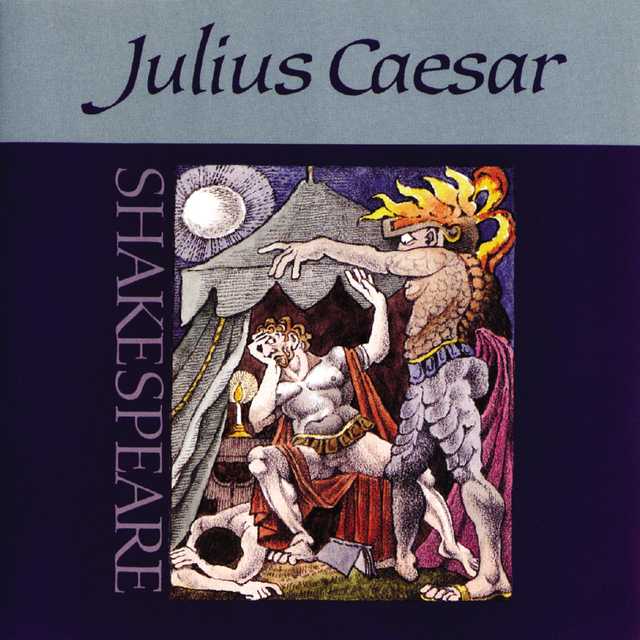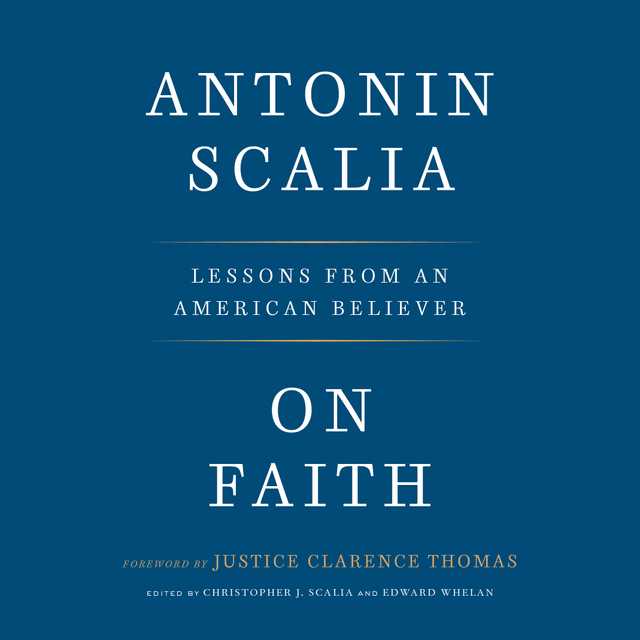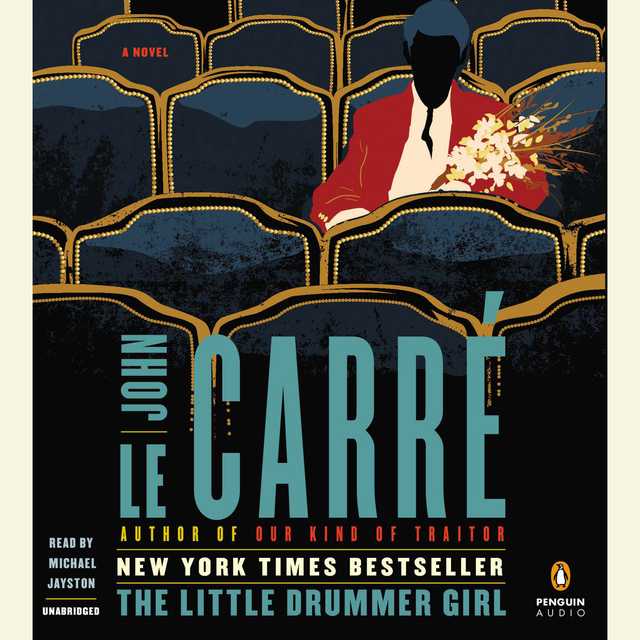Julius Caesar Audiobook Summary
“Cry ‘Havoc,’ and let slip the dogs of war…” – Antony
A Shakespeare Society Production. The complete play in five acts.
Features a unique cover illustration by Maurice Sendak (Where the Wild Things Are), specially commissioned for the Shakespeare on Compact Disc series — now on digital audiobook.
Other Top Audiobooks
Julius Caesar Audiobook Narrator
Sir Ralph Richardson is the narrator of Julius Caesar audiobook that was written by William Shakespeare
About the Author(s) of Julius Caesar
William Shakespeare is the author of Julius Caesar
More From the Same
- Author : William Shakespeare
- Romeo & Juliet & Vampires
- All’s Well That Ends Well
- King Lear
- Richard III
- Julius Caesar
- Publisher : Caedmon
- Dubliners
- Julius Caesar
- The Two Gentlemen of Verona
- The Tempest
- Measure for Measure
Julius Caesar Full Details
| Narrator | Sir Ralph Richardson |
| Length | 2 hours 12 minutes |
| Author | William Shakespeare |
| Category | |
| Publisher | Caedmon |
| Release date | December 27, 2003 |
| ISBN | 9780060742713 |
Subjects
The publisher of the Julius Caesar is Caedmon. includes the following subjects: The BISAC Subject Code is Ancient & Classical, Literary Collections
Additional info
The publisher of the Julius Caesar is Caedmon. The imprint is Caedmon. It is supplied by Caedmon. The ISBN-13 is 9780060742713.
Global Availability
This book is only available in the United States.
Goodreads Reviews
Bill
July 30, 2019
In the course of teaching high school sophomores for thirty years, I have read Julius Caesar more than thirty times, and I never grow tired of its richness of detail or the complexity of its characters. Almost every year, I end up asking myself the same simple question--"Whom do I like better? Cassius or Brutus?"--and almost every year my answer is different from what it was the year before. On one hand, we have Cassius, the selfish, manipulative conspirator who, after the assassination, shows himself to be an impulsive, loyal friend and an able politician, and, on the other hand, Brutus, the conscientious intellectual and lover of the republic who becomes, under the weight of his guilt, an irritatingly scrupulous moralist and an inept general more concerned with reputation than success. And then of course there is Antony: brilliant, vicious, unscrupulous, and ultimately as unknowable as a tornado. This is a great play about politics and human character.
Jeffrey
November 17, 2019
“Cowards die many times before their deaths; The valiant never taste of death but once. Of all the wonders that I yet have heard, It seems to me most strange that men should fear; Seeing that death, a necessary end, Will come when it will come.” Beware the Ides of March. Beware to those that have aspirations to rule. You may encounter many enemies. People who will thwart your plans. People quite possibly afraid of your genius. People suffering from delusions of grandeur. I always say keep an eye on the son of your favorite squeeze. Marcus Junius Brutus, what a fickle man, you are running around like a plucked chicken looking for your missing head. ”He seems completely blind to reality, an ineffectual idealist whose idealism cannot prevent him from committing a senseless and terrible crime.” You let the insidious Cassius fill your ear with dilettante, conspiratorial nonsense. ”Cadaverous and hungry-looking, much given to brooding, and a great reader; a scorner of sports and light diversions, a very shrewd judge of human nature, and deeply envious of those who are greater than himself.” So the question remains, is Cassius the shrewd judge of character, capable of seeing the future, or is he the man consumed by jealousy who wants to see the mighty Julius Caesar fall? You fell for that first man of Rome, the republic is your responsibility, and all that. As it turns out, you aren’t the only dagger maestro in your family. Gaius Servilius Structus Ahala, a distant relative of yours, saved Rome from another tyrant named Spurius Maelius. Of course, that is all in the far distant past and might even be a myth, but Cassius knows the right buttons to push. ”And therefore think him as a serpent’s egg,Which, hatch’d, would, as his kind, grow mischievous,And kill him in the shell.” You might have said the line Brutus, but the stench of it, the green gray smoke of it, smacks of Cassius. Wouldn’t it have been more prudent to see what Caesar intended to do with his power before you stab, stab, STABBED him to death?“Et tu, Brute?”That must have felt like a punch in the gut given that you had his blood all over your sword and hands at the time. Caesar’s parting guilt laden gift to you. I’m just putting a few thoughts out there in the wind. How’d you feel about Caesar putting the sausage to your mother? Did the bedposts banging against the wall feel like a drummer hammering your skull? Maybe Cassius doesn’t have to be that convincing. CassiusIt must have been a real kick in the subligaculum when that hack William Shakespeare named the play after Julius Caesar. My god, man, you have four times the lines, and for most of the play Caesar is nothing more than an apparition. An annoying apparition, by the way, who keeps showing up at the most inconvenient times and saying things like, ”Let loose the dogs of war.”Letting Marc Antony live was probably a mistake. He isn’t the brightest star in the firmament, but he is a brave soldier. A good leader, but better as number two than number one. You aren’t really a mad dog killer after all, so the thought of killing Antony is like crunching on the bones of a stale dormouse. ”Of course will seem too bloody, Caius Cassius,To cut the head off and then hack the limbs,Like wrath in death and envy afterwards;For Antony is but a limb of Caesar.Let’s be sacrificers, but not butchers, Caius.We all stand up against the spirit of Caesar.” Magnanimous of you, Brutus. Well said, but did you think ZOINKS after Antony dropped that rap battle speech at Caesar’s funeral. Marc Antony ”Friends, Romans, countrymen, lend me your ears;I come to bury Caesar, not to praise him.The evil that men do lives after them;The good is oft interred with their bones;So let it be with Caesar. The noble BrutusHath told you Caesar was ambitious:If it were so, it was a grievous fault,And grievously hath Caesar answer’d it.Here, under leave of Brutus and the rest–For Brutus is an honourable man;So are they all, all honourable men– You remember the one, right? The speech where he basically calls you a douche bag under the guise of singing your praises. I’m not going to talk about the disaster at the battle of Philippi. I think that might have been where the term Caesar salad came into common usage. Marc Antony and Octavius join forces and break the will of your men. We are all ready, way past ready, for you to fall on your own sword. In fact, I would have happily given you a firm Caligae to the arse if you needed a little extra encouragement. If you wish to see more of my most recent book and movie reviews, visit http://www.jeffreykeeten.comI also have a Facebook blogger page at:https://www.facebook.com/JeffreyKeeten
Ahmad
September 11, 2021
The Tragedie Of Julius Caesar, William Shakespeare The Tragedy of Julius Caesar is a tragedy by William Shakespeare, believed to have been written in 1599. It is one of several plays written by Shakespeare based on true events from Roman history, which also include Coriolanus and Antony and Cleopatra. Although the play is named Julius Caesar, Brutus speaks more than four times as many lines as the title character; and the central psychological drama of the play focuses on Brutus' struggle between the conflicting demands of honor, patriotism, and friendship. ...عنوانهای چاپ شده در ایران: «تراژدی قیصر: نمایشنامه در پنج پرده»؛ «تراژدی ژولیوس سزار»؛ «ژولیوس سزار»؛ «جولیوس قیصر»؛ اثر: ویلیام شکسپیر؛ تاریخ نخستین خوانش سال 1971میلادیعنوان: تراژدی قیصر: نمایشنامه در پنج پرده؛ اثر: ویلیام شکسپیر؛ مترجم: فرنگیس شادمان (نمازی)؛ مشخصات نشر تهران، بنگاه ترجمه و نشر کتاب، 1334، در 161ص، موضوع نمایشنامه های نویسندگان بریتانیایی - سده 16ماز همین مترجم: تهران، شرکت انتشارات علمی فرهنگی، 1382، در 177ص؛ شابک 9789644459733؛عنوان: جولیوس قیصر؛ اثر: ویلیام شکسپیر؛ مترجم ابوالحسن تهامی؛ نشر نگاه؛ 1395؛ در 247ص؛ شابک 9786003761902؛نمایشنامه ی «تراژدی ژولیوس سزار»، که به اختصار «ژولیوس سزار» نیز نامیده میشود، اثر «ویلیام شکسپیر» است، که گمان میرود در سال1599میلادی نوشته شده باشد؛ این نمایشنامه درباره ی توطئه ای است که در سال 44پیش از میلاد، علیه «ژولیوس سزار»، دیکتاتور «روم» صورت گرفت، که به قتل او، و نیز شکست توطئه گران در نبرد «فیلیپی»، منجر شد؛ «شکسپیر» دو نمایشنامه ی «کوریولانوس»، و «آنتونیوس و کلئوپاترا» را نیز، از رخدادهای تاریخی دوران امپراتوری «روم» اقتباس کرده اند؛ اگرچه عنوان نمایشنامه «ژولیوس سزار» است، ولی «سزار» شخصیت اصلی نمایشنامه نیست؛ او تنها در سه صحنه حضور دارد، و در ابتدای پرده ی سوم کشته میشود؛ «مارکوس بروتوس»، بیشتر از چهار بار، و هر بار چندین خط، سخن میگوید، و بار روانشناسی نمایش، کشمکش او برای گزینش، بین شرافت، وطن پرستی، و دوستی با «سزار» استتاریخ بهنگام رسانی 14/09/1399هجری خورشیدی؛ 20/06/1400هجری خورشیدی؛ ا. شربیانی
Emma
February 23, 2021
4.5
Henry
August 07, 2020
The most powerful, famous man in Roman history, her greatest conqueror, loved by the adoring , poor population, of Rome, ( and Cleopatra, also) that has brought glory and prosperity, too, the army will follow anywhere he leads, certain victory and riches to the soldiers, the Senate has given numerous awards to him, Rome's enemies tremble at the name of the mighty Caesar, but of course nobody is loved by all, men are small, petty, and jealous, why should he be above them, (fearing he, becoming King) the less talented and not as successful, always will ask this eternal question...The world is full of chaos, by men who believe in a cause, they never see the consequences, of their actions, what happens, afterwards, most don't care . A conspiracy by a conservative faction of the Roman Senate, organized by Marcus Brutus and Gaius Cassius, an upper class clique, the aristocrats, didn't like Caesar's rule, but pretended to be his friends, had contempt for the plebeians, (common citizens) and on the Ides (15th) of March, 44 B.C. stabbed the great, brilliant warrior, 23 times ( Et tu, Brutus?) . Those Senators were out of touch with reality, believing they would be praised for their treachery, yet when Mark Anthony, gives a fiery speech, to the dazed, vast crowds, asking them, when will there be another man, like him, never, they shout back, at Caesar's funeral, (but Brutus, said he was ambitious) and shows the bloody body , clothes, of the fallen, and reads his will, giving every poor citizen ( who he loved), a vast amount of money and a park, his own gardens, to the lowly , riots ensue, the surprised assassins, flee for their lives out of the huge city...At the decisive battle of Philippi, in Greece, Mark Anthony and young Octavian, (Augustus Caesar) Julius Caesar's great-nephew, fought Brutus and Cassius, a total of 400,000 soldiers , for the control of Rome, the winners live, the losers die...but none were generals like Caesar... A great, immortal play, that asks who is right and who is wrong , Brutus and Cassius or Caesar, generations past, and in the unforeseen future, will deliberate this unanswerable question, politics can be deadly, when one group believes they know best, anyone opposing them, will be butchered, for the good of the state, these pitiable people, cease to be human, the killers, destroy , but the blood sprays on all, as later the victims, friends, fight back , vengeance is very sweet, thousands , even millions may perish, but the gore continues unrelenting, until the people have had enough, or no one is left, it may go on for a long, long, while, though. There are no noblemen, in hate...
Elle
February 13, 2019
💜reread for my Shakespeare classI really do love this play but I was also in it, with an Overly Large Yet Worth It Role, and at this point I have no energy to have thoughts on it, we'll talk about why I love this show and then we'll end with the long list of terrible memes (also why the FUCK did I give this four stars. it's a five goodnight I love this underrated play)WHY THIS PLAY IS FUCKING AWESOMEOkay, first of all, and no one else cares: it's pretty damn historically accurate as Shakespeare goes. And I'm a stressed Latin student. So that was nice to see. It's also a really good play as characters go. Every character parallels around three other characters in interesting ways; Brutus especially is a foil to all of the other three leads. All the relationships between the characters are so interesting and heartbreaking. This is also just one of the best-written plays I've ever read. I love how Shakespeare varies his meter for every character. Okay, example time: Brutus ends at least half his statements with weak endings rather than in typical Iambic Pentameter. Cool, right? Maybe it's not if you don't know what any of that meant. Nevermind. But my nerd ass loves it. Also, so much rhetoric. That assembly scene changed me as a person. You could write a freaking term paper on that scene and still not fully analyze the whole thingAnd it's still a relevant story today!! This play has some really fucking relevant political commentary. There's actually a line in this play about how this bloody scene, this surprise betrayal, will be reenacted a thousand times over in the future, and it's maybe the most brilliant line of all time, ever. I love it. I can't believe we cut it. Beyond all that, though, this is just one of the most narratively strong plays I've ever read. This is my favorite kind of tragedy. Every single character has sensical motivations!! There's no villain!! There's no fate as the villain!! Every bad thing that happens is the result of a character decision. I just really love this play narratively. SOME MEMES, FOR YOUR ENJOYMENT— I can't believe Brutus and Cassius are being chewed on by Satan in hell they didn't deserve this @Dante you take that shit back they were just trying to stop a fucking dictator good god— comparing Caesar to Trump is unfair?? Caesar cared about poor people how is that comparable to our current president— please just look at this— add “bro” to every single line of The Tent SceneTM and it's 100% better trust me I Am A Scientist— et tu, brote— some people?? stab emperors?? to coup??— Cassius every single time something goes wrong: time to die lmao— au where this whole thing takes place on tumblr and Antony's speech is just a callout post and no one stays in their lane — that Mean Girls version of the speech is really fucking accurate she even gets in "Brutus is just as cute as Caeser" and if that's not something Cassius would say I don't know what is— sorry Shakespeare I really do love your work I don't only make memes about it— and yet: holy fuck(i'm really sorry)— this play is literally Macbeth except less supernatural, more Roman, and more gay — there's also this weird Romeo-and-Juliet esque triple suicide? in which a character who has never shown up before is suddenly Cassius' best friend and then they kill themselves and lie dead next to each other over a misunderstanding? it's weird— and then Brutus comes in and dies too so... triple suicide? cool??— I feel like I should mention that random new character is quite literally named Titty-nius— Shakespeare, on his 1610 ao3 account: lmao let's write a crossover of Romeo and Juliet and Macbeth except... Roman au — this play invented the bury your gays trope— or maybe someone just yelled "the floor is stabbing Caesar"— I'm so very sorry for this review I regret it alreadyBlog | Goodreads| Twitter | Youtube
Mark
September 04, 2018
'You blocks, you stones, you worse than senseless things!'
Sean Barrs
February 12, 2018
"But Brutus says he was ambitious;And Brutus is an honourable man…. "Oh yes! So very, very, honourable was our dear Brutus…..To think these two were once friends.
Alex
October 15, 2019
What a terrible era in which idiots govern the blind.Here's the plot: a demagogue threatens democracy and his own allies in the Senate have to decide whether to remove him. So you can see why the Public Theater's minds went to recent events when they staged Julius Caesar in Central Park. Their version, set in modern times and featuring a familiar-looking Caesar, has made some headlines, and I won't lie: the murder scene was disturbing to watch. Art often tries to be dangerous, but it rarely succeeds. This production, which we attended on its final weekend, felt dangerous.no picture-taking was allowed so these are media images - you'll have to take my word for it that I was thereBut "Alas," protesters outside, "Thou hast misconstrued everything." The knives are metaphors. We're talking about the dangers of tyranny here. The central question of the play is, were the conspirators right to remove Caesar? And Shakespeare, who, let's not forget, was paid by kings to play for kings, isn't exactly antiauthoritarian. You should not expect him to endorse kingslaying, and he doesn't."As he was valiant," says Brutus, "I honor him. But as he was ambitious, I slew him." And how ambitious was he? Was Brutus right to fear for democracy? There's a key scene that answers that question. In it, Caesar, who "would not be a wolf / but that he sees the Romans are but sheep," is offered a crown, three times, and refuses it. The smartest person in Rome, Cicero, then gives a brilliant speech. And here's the funny (and quintessentially Shakespearean thing) about that scene: we don't see it. It's narrated to us by Casca, a conspirator, who tells us that he thinks Caesar was just holding out for a better crown. And that speech by Cicero? Well, it was in Greek. Casca didn't understand a word of it. The famous phrase, "It was Greek to me," represents Shakespeare allowing you to decide.you're about two minutes from seeing this guy's junkBut whether he was a tyrant or not, certainly the result of his removal is chaos. No one wins. What happens after Caesar is another Caesar - Octavius, his adopted son, depicted in Central Park wearing (of course) a dorky flak jacket. He and Marc Antony go to war against the conspirators; Brutus and Cassius (view spoiler)[commit suicide; (hide spoiler)] by the end nothing has really changed. Once Julius Caesar crossed the Rubicon with his army - we're talking about history here, not just Shakespeare - democracy in Rome never recovered. When you ask, "How can we protect democracy? Is it by taking extreme measures to remove the threat? Or should we hope our government can survive him on its own?" Shakespeare answers: if you're asking the question, you've already lost.Bummer that we couldn't have watched this play a couple years ago, then. “How many ages hence," asks Cassius, "Shall this our lofty scene be acted over, / In states unborn and accents yet unknown!” and you're like I don't know, hopefully just one more?["br"]>["br"]>["br"]>["br"]>["br"]>["br"]>["br"]>["br"]>["br"]>["br"]>["br"]>["br"]>["br"]>["br"]>["br"]>["br"]>
♡ Martina ♡
April 30, 2022
È la prima volta che leggo un testo teatrale e, sinceramente, non pensavo che mi sarebbe piaciuto così tanto.Siamo abituati a leggere solo una versione della storia dell'assassinio di Giulio Cesare ma Shakespeare ha preferito dare voce ai suoi cospiratori dove non tenta di giustificarli o di condannarli ma ce li fa conoscere come uomini, con i loro ideali, i loro valori ma anche con i loro difetti.È un libro molto scorrevole e con un linguaggio non troppo complicato, la traduzione secondo me è anche abbastanza buona ma non essendo traduttrice non posso giudicarla con oggettività. Ho apprezzato la numerosa mole di personaggi presenti, secondari e non.
Manny
March 26, 2009
I once performed the whole of Mark Anthony's "Friends, Romans, Countrymen" speech on the steps outside the Great Hall in Trinity College, Cambridge, wearing a bedspread as a toga and with a bucket chained over my head. It's a long story. I think I still know the speech by heart.
Darwin8u
July 27, 2017
“What a terrible era in which idiots govern the blind.” ― William Shakespeare, Julius Caesar, Act 2, Scene 1Julius Caesar was one of my first Shakespeare loves. I remember in Jr High memorizing (and I still can remember most of it) Mark Anthony's eulogy to Caesar ("Friends, Romans, countrymen, lend me your ears..." It was powerful and was an early indicator for me of language's potential energy. Within those lines there were several messages, foreshadowing, etc. It turned me onto both Shakespeare and the Classics. I'm now coming back to Julius Caesar 25+ years later. Hopefully a bit more mature. With a bit more body hair. Certainly, with more experience with Shakespeare, the Classics, and politics and the original JC. I've now read considerably Livy, Edward Gibbon, Suetonius, and probably most importantly Plutarch. But even with all of this 'source' material, the play itself still seems to capture the imagination in ways that history (both modern and ancient) can't. Shakespeare can tease out and nuance things (obviously made up) that gives live to Brutus, Caesar, Anthony.It was ironic too that I was reading Julius Caesar right after (unplanned) the June controversy with the New York Public Theatre's production where they used a Trump-like character to play the part of Julius Caesar. The brouhaha could easily have been predicted. The closer our contemporary leaders become to actual tyrants, the harder it becomes for their supporters to digest their images being used to portray an assassinated Julius Caesar. The closer we edge to the end of the Republic, the more relevant and less popular Julius Caesar will be with those in tyrannical camps. It all holds up. It still feels relevant and even a bit dangerous. Favorite Lines:“The fault, dear Brutus, is not in our stars, but in ourselves.” (Act 1, Scene 2)"But, for my own part, it was Greek to me.” (Act 1, Scene 2)“...for the eye sees not itself,but by reflection, by some other things.” (Act 1, Scene 2)“Cowards die many times before their deaths; the valiant never taste of death but once.” (Act 2, Scene 2)“Cry havoc and let slip the dogs of war!” (Act 3, Scene 1)“Of your philosophy you make no use,If you give place to accidental evils.” (Act 4, Scene 3)
J.L.
January 28, 2019
The party on the streets of Rome provides the context: Julius Caesar's power is becoming close to absolute. The crowds love Caesar. The dissenters who stand on the outskirts of this party see few options to check Caesar's power. These differing perspectives from the opening of William Shakespeare's Julius Caesar gives it a nuance that belies the simple story of Brutus's betrayal. Very intriguing and enjoyable! This is probably one of the most famous of Shakespeare's plays which I'd never read. There were many familiar quotes (which I'd heard before, but had not tied to this specific play; see below). While I don't think it's among his very best, Shakespeare's mastery of language is in full force. 4.25 stars. Beware the Ides of March.(Soothsayer, Act 1 Scene 2)Men at some time are masters of their fates.The fault, dear Brutus, is not in our starsBut in ourselves, that we are underlings.(Cassius, Act 1 Scene 2)But, for mine own part, it was Greek to me. (Casca, Act 1 Scene 2)Cowards die many times before their deaths, The valiant never taste of death but once. (Caesar, Act 2 Scene 2)Et tu, Brute?—Then fall, Caesar.(Caesar, Act 3, Scene 1)Cry havoc and let slip the dogs of war.(Antony, Act 3 Scene 1)Friends, Romans, countrymen, lend me your ears. (Antony, Act 3, Scene 2)
Frequently asked questions
Listening to audiobooks not only easy, it is also very convenient. You can listen to audiobooks on almost every device. From your laptop to your smart phone or even a smart speaker like Apple HomePod or even Alexa. Here’s how you can get started listening to audiobooks.
- 1. Download your favorite audiobook app such as Speechify.
- 2. Sign up for an account.
- 3. Browse the library for the best audiobooks and select the first one for free
- 4. Download the audiobook file to your device
- 5. Open the Speechify audiobook app and select the audiobook you want to listen to.
- 6. Adjust the playback speed and other settings to your preference.
- 7. Press play and enjoy!
While you can listen to the bestsellers on almost any device, and preferences may vary, generally smart phones are offer the most convenience factor. You could be working out, grocery shopping, or even watching your dog in the dog park on a Saturday morning.
However, most audiobook apps work across multiple devices so you can pick up that riveting new Stephen King book you started at the dog park, back on your laptop when you get back home.
Speechify is one of the best apps for audiobooks. The pricing structure is the most competitive in the market and the app is easy to use. It features the best sellers and award winning authors. Listen to your favorite books or discover new ones and listen to real voice actors read to you. Getting started is easy, the first book is free.
Research showcasing the brain health benefits of reading on a regular basis is wide-ranging and undeniable. However, research comparing the benefits of reading vs listening is much more sparse. According to professor of psychology and author Dr. Kristen Willeumier, though, there is good reason to believe that the reading experience provided by audiobooks offers many of the same brain benefits as reading a physical book.
Audiobooks are recordings of books that are read aloud by a professional voice actor. The recordings are typically available for purchase and download in digital formats such as MP3, WMA, or AAC. They can also be streamed from online services like Speechify, Audible, AppleBooks, or Spotify.
You simply download the app onto your smart phone, create your account, and in Speechify, you can choose your first book, from our vast library of best-sellers and classics, to read for free.
Audiobooks, like real books can add up over time. Here’s where you can listen to audiobooks for free. Speechify let’s you read your first best seller for free. Apart from that, we have a vast selection of free audiobooks that you can enjoy. Get the same rich experience no matter if the book was free or not.
It depends. Yes, there are free audiobooks and paid audiobooks. Speechify offers a blend of both!
It varies. The easiest way depends on a few things. The app and service you use, which device, and platform. Speechify is the easiest way to listen to audiobooks. Downloading the app is quick. It is not a large app and does not eat up space on your iPhone or Android device.
Listening to audiobooks on your smart phone, with Speechify, is the easiest way to listen to audiobooks.






























